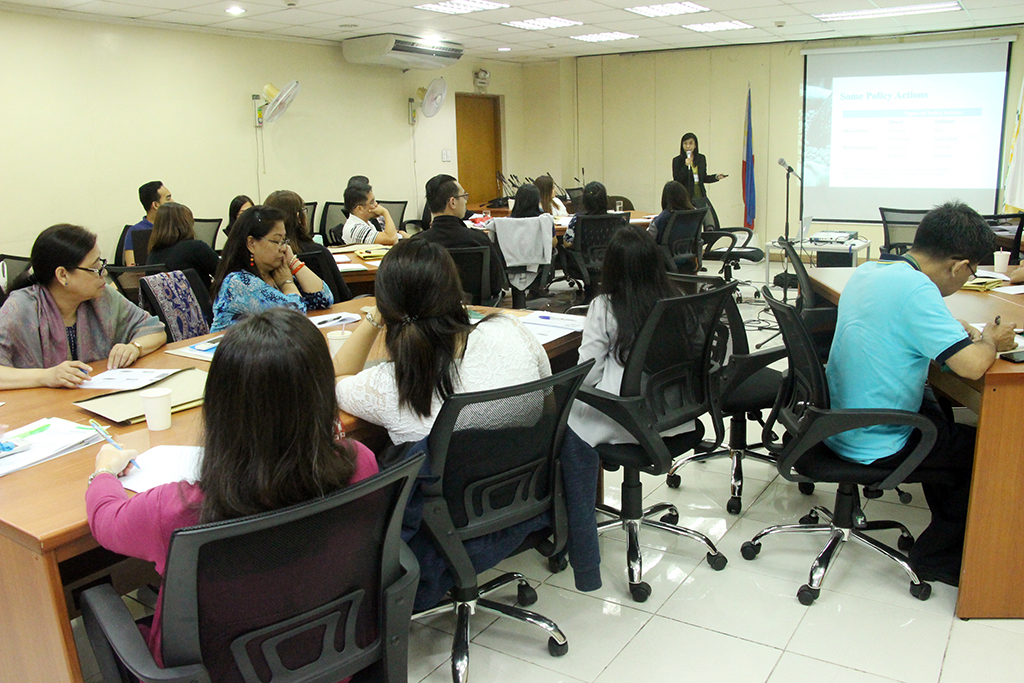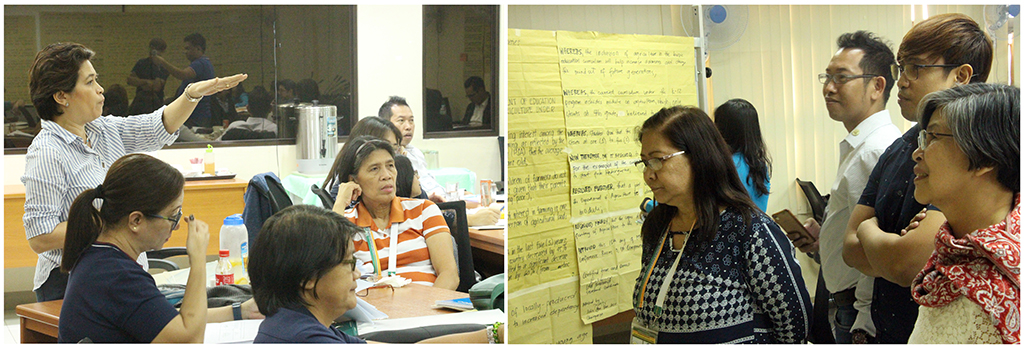
The University of the Philippines- Center for Leadership, Citizenship and Democracy’s (UP-CLCD) program for Policy-making and Engagement for Agricultural and Fishery Council (AFC-CAPE) was tested by 27 selected employees of the Philippine Council for Agriculture and Fisheries (PCAF) on February 13 to 15, 2018.
Since 2015, PCAF has been partnering with the University of the Philippines-National College of Public Administration and Governance (UP-NCPAG) in conducting the AFC-CAPE trainings.
This year, CLCD will be facilitating the trainings two years after the Center for Local and Regional Governance (CLRG) handled it.
“As CLCD will now conduct the trainings, we need to pilot-test their module for AFC-CAPE to gather feedbacks, alter, and fit the content and workshop tools for our AFCs,” said Arsenia Perez, Chief of PCAF Capacity Development Section (CDS).
The pilot-test of the AFC-CAPE also aims to suit the needs of the AFC volunteer-partners in policy analysis and development, conduct effective meetings that will create policy recommendations, and expand stakeholder engagement through policy advocacy.
PCAF plans to conduct 10 AFC-CAPE trainings from different regions within the year. The activity is also in line with PCAF’s and CLCD’s mandate on citizen engagement and volunteerism.
According to PCAF-CDS, the training is relevant in recognizing the multi-functional role of the AFCs within the context of pursuing the mandate of the Agriculture and Fisheries Modernization Act which calls for more active and relevant participation of members and officers of AFCs.

CLRG’s three-day training for the AFC-CAPE will be a combination of lectures from the resource speakers and workshops as practical application of the participants’ learning.
Topics include Policy Analysis and Development, Policy Advocacy (Expanding Stakeholder Engagement), Conducting Effective and Participatory Meetings, and Crafting of Resolutions.
The Policy Analysis and Development aims to re-orient the participants on the tools to use on proper issue framing by using evidence-based approach, and followed by identifying and selecting policy alternatives.
This will help the participants to practice and demonstrate proper structuring of policy problems, problem prioritization, and identifying solutions.
Policy Advocacy will be based on the workshop outputs of the first topic. The session includes advocacy process and elements.
By starting with integrating policy issues from the grassroots and creating a “story” for the policy issue, it will be used to influence the policy agency and decisions.
The Conduct of Effective and Participatory Meetings will also include the discussion on rules of parliamentary procedures. This will re-orient the AFCs to the basics of meeting agenda.
As part of the training, the participants will be introduced to the rules and practices being adopted by other councils. It will include the orderly and formal manner of conducting meetings by means of motions, proper time for debate, tenets or rights of the members of the council, and approval of resolutions or documents deliberated upon by the council.
The Crafting of Resolutions will be the final part of the training where the participants will write resolutions and focus on what needs to be seen or understood in a document.– JC











